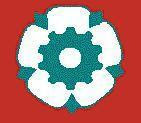 A recent interview has revealed more details about the origins of Russian Traditionalism in the 1960s: it all started with Gurdjieff.
A recent interview has revealed more details about the origins of Russian Traditionalism in the 1960s: it all started with Gurdjieff.In chapter 12 of Against the Modern World, I wrote "The attention of Yevgeny Golovin, a Russian poet known only to the circle of dissident or ‘independent’ intellectuals he led, was drawn to . . . Traditionalist writers in 1962 or 1963." Later in the chapter, I wrote that "the closest Golovin's circle came to action was that occasionally they would become very drunk," and mentioned Vladimir Stepanov as "a graduate of the Moscow Institute of Philosophy who belonged to Golovin's circle."
Later research has revealed that I got this somewhat wrong:
The development of an interest in Evola, then, started after 1973, and involved (especially) Golovin and Jamal–and Alexander Dugin encountered Traditionalism through an offshoot of what had originally been a Gurdjieff group.
Dugin (interview, Moscow, January 2006) recalled Golovin’s bateau ivre, discussed in the revised version of chapter 12. The name refers to Arthur Rimbaud’s poem, but may well also be a development of Stepanov’s Gurdjieffian "ship of fools." This may be a reference to Gurdjieff’s "toast to the idiots," or may be something else: see here.
Rovner is, since 2001, director of the Institute for Cultivation of Inner States (ICIS) in Moscow, the activities of which are inspired not only by Gurdjieff but also by Traditionalism.
Later research has revealed that I got this somewhat wrong:
- As I have already written in the revised version of chapter 12 (already published in Serbian and forthcoming in Russian), Vladimir Stepanov was the leader of a circle to which Golovin belonged, not the other way round.
- It has now become clear that this circle did, in fact, follow a spiritual path: the "Fourth Way" of George Ivanovich Gurdjieff.
Arkady Rovner, who met Stepanov in 1964, explained (interview, Berlin, March 12, 2007) that Stepanov’s interests during the 1960s and early 1970s were principally in Gurdjieff, whose Fourth Way he had encountered in the Lenin Library via a book by Peter D. Ouspensky. Stepanov, Golovin, Haydar Jamal, Yuri Mamleyev and Rovner were among those who for a few years "almost lived" in the Lenin Library, not only reading but also eating and–above all–talking there. They formed a small and very close Gurdjieff group–or, Rovner insists, a "company," as its members were "too individualist" to form a group. They tried hard to do Gurdjieff’s Work, and were in contact with John G. Bennett (and hence, later, with Idries Shah and Robert Graves). Aspiring members of the Gurdjieff "company" were required to pass tests, such as wearing, for one week, one black and one brown shoe. If you read Russian, there is a paper on this by Rovner, "ГУРДЖИЕВСКОЕ ДВИЖЕНИЕ В РОССИИ 1960-х и 1970- ВОСПОМИНАНИЯ И РЕФЛЕКСИИ УЧАСТНИКА."
Rovner left the Soviet Union for the United States slightly before Mamleyev did, in 1973. At that point, the company had no interest in Evola–but did have some interest in Guénon, principally for the sake of the idea of the perennial tradition, which gave them a universalist perspective they could advance against what they saw as the more narrowly dogmatic and Orthodox ideas of people like Valentin Nikitin.
The development of an interest in Evola, then, started after 1973, and involved (especially) Golovin and Jamal–and Alexander Dugin encountered Traditionalism through an offshoot of what had originally been a Gurdjieff group.
Dugin (interview, Moscow, January 2006) recalled Golovin’s bateau ivre, discussed in the revised version of chapter 12. The name refers to Arthur Rimbaud’s poem, but may well also be a development of Stepanov’s Gurdjieffian "ship of fools." This may be a reference to Gurdjieff’s "toast to the idiots," or may be something else: see here.
Rovner is, since 2001, director of the Institute for Cultivation of Inner States (ICIS) in Moscow, the activities of which are inspired not only by Gurdjieff but also by Traditionalism.


